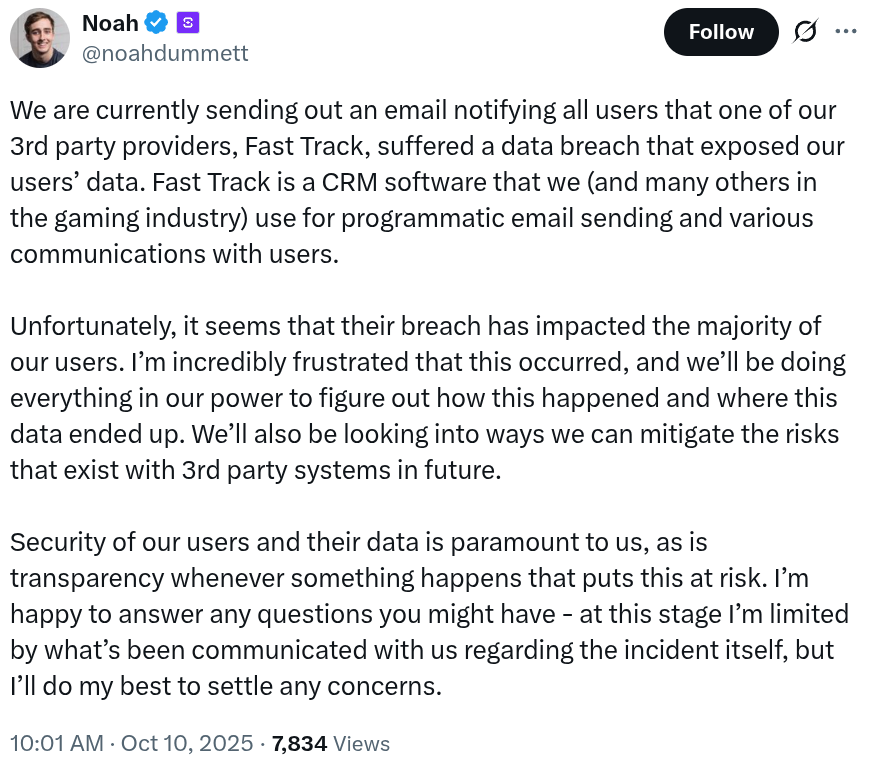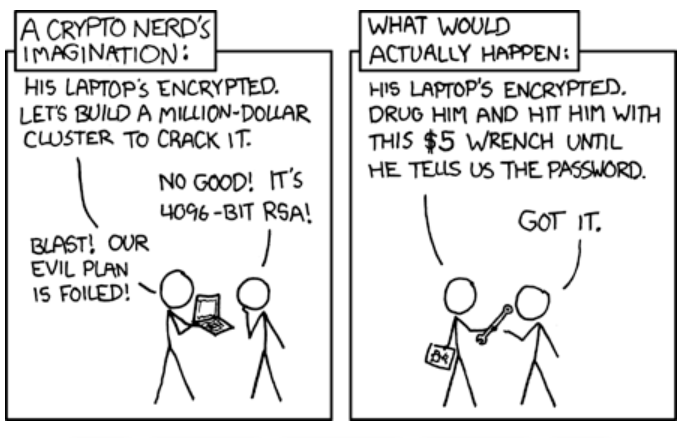
Shuffle‘s User Data Exposed in Third-Party Breach
The crypto betting platform Shuffle has announced a significant data breach, casting a shadow over user security and raising critical questions about the vulnerabilities within the cryptocurrency ecosystem. The breach, stemming from a compromise of the company’s customer relationship management (CRM) service provider, Fast Track, has exposed the data of a considerable number of Shuffle users. This incident highlights the inherent risks associated with relying on third-party services for managing sensitive user information.

Details of the Breach and Potential Impact
According to a statement from Shuffle founder Noa Dummett, the breach impacted the majority of their users. Fast Track, responsible for “programmatic email sending and various communications,” likely had user email addresses and other communication details exposed. The exact extent of the compromised data is currently under investigation. The implications of this data exposure are significant, potentially leading to increased phishing attempts, social engineering scams, and other malicious activities targeting Shuffle users.
The fact that Shuffle relies on a third-party provider, Fast Track, to handle customer communication and data management is a common practice, yet it also represents a significant single point of failure. As demonstrated by this event, a compromise in the security of a third-party service can have far-reaching consequences for the primary service provider and its users. The company is now evaluating alternative solutions, but the damage to user trust and the potential for long-term repercussions are considerable.
Wider Industry Implications and Risks
This incident underscores a larger issue within the cryptocurrency industry: the need for robust security measures and due diligence across all levels of operation. Data breaches, regardless of their scale, can have devastating consequences. Beyond the immediate impact of potential financial loss, the exposure of personal data can also lead to more insidious threats, including identity theft and even physical harm, as highlighted by the increasing number of so-called “$5 wrench attacks.”

Increased Vigilance and Proactive Measures
The incident at Shuffle serves as a stark reminder that users must remain vigilant and proactive in protecting their assets. This includes adopting strong password practices, enabling two-factor authentication (2FA), and being wary of unsolicited communications. The industry itself must also strive for improved security protocols, more transparent auditing processes, and a greater focus on decentralized solutions where possible.
- Phishing Attempts: Scammers can impersonate Shuffle to steal credentials.
- Social Engineering: Attackers may use exposed data to gain trust.
- Physical Threats: Data leaks could make users targets for theft.
Ultimately, the Shuffle data breach should serve as a catalyst for change, urging the industry to prioritize user security and transparency. The long-term health and adoption of cryptocurrency depend on the ability of platforms to safeguard user data and instill confidence within the community. This incident, alongside others, serves as a costly lesson in the importance of comprehensive security strategies and the careful management of user information.


